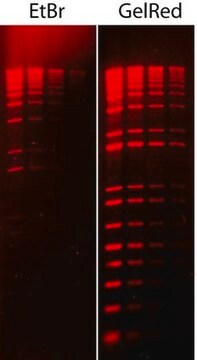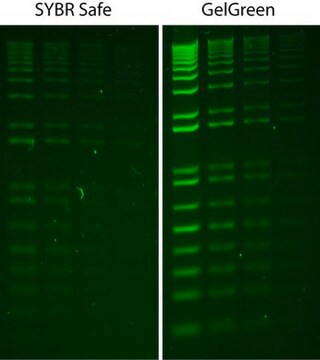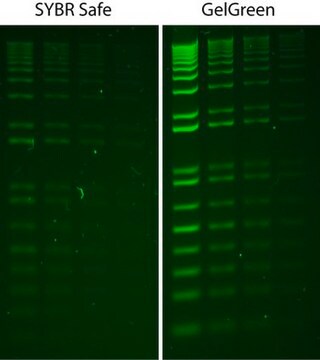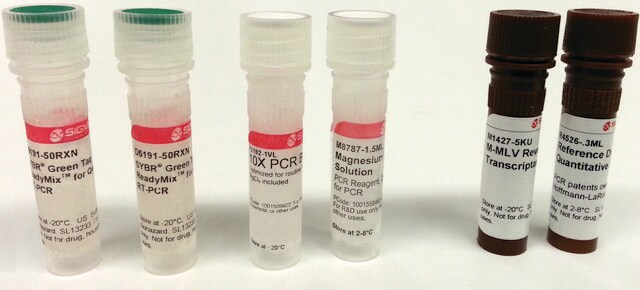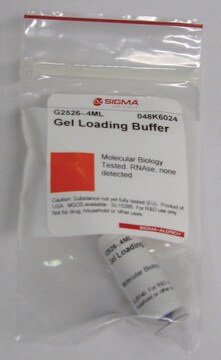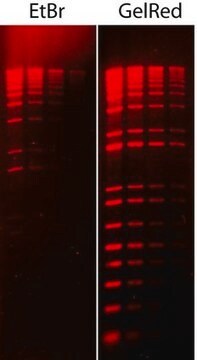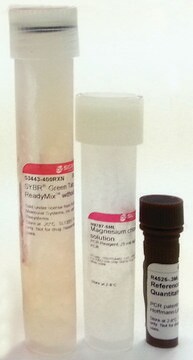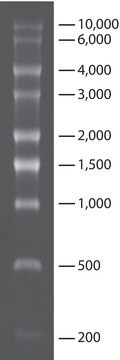S9305
SYBR® Green II RNA gel stain
10,000 × in DMSO
Sinónimos:
RNA gel dye, SYBR® RNA dye, safer gel stain
About This Item
Productos recomendados
uso
1 mL sufficient for 100 mini-gels
Nivel de calidad
características de los productos alternativos más sostenibles
Designing Safer Chemicals
Learn more about the Principles of Green Chemistry.
sustainability
Greener Alternative Product
concentración
10,000 × in DMSO
categoría alternativa más sostenible
temp. de almacenamiento
−20°C
¿Está buscando productos similares? Visita Guía de comparación de productos
Descripción general
Aplicación
- for the quantification of ribonucleic acid (RNA) in Escherichia coli
- for staining 5′-ETS rRNA species separated on polyacrylamide gel prior to Northern blot analysis
- to stain formaldehyde agarose gels to visualize RNA bands
Características y beneficios
- Ultrasensitive stain for post-electrophoresis staining of RNA and ssDNA
- Excited maximally at 497 nm with a secondary excitation peak at 254nm
- The fluorescence emission of SYBR®Green II stained RNA is centered at 520 nm
- Staining agarose/formaldehyde gels with SYBR Green II does not interfere with the transfer of RNA to membranes or subsequent hybridization in Northern blot analysis as long as 0.1% -0.3% SDS is included in prehybridization and hybridization buffers to remove the dye
- Might facilitate the detection of viroid RNAs and multicopy cellular RNA species
- More sensitive than ethidium bromide in applications that require extremely sensitive detection techniques such as single-strand conformation polymorphism (SSCP) analysis
Información legal
sustituido por
Clase de riesgo para el agua (WGK)
WGK 3
Equipo de protección personal
Eyeshields, Gloves, multi-purpose combination respirator cartridge (US)
Elija entre una de las versiones más recientes:
¿Ya tiene este producto?
Encuentre la documentación para los productos que ha comprado recientemente en la Biblioteca de documentos.
Los clientes también vieron
Contenido relacionado
Nancy-520 for DNA Detection and Quantitation
Nuestro equipo de científicos tiene experiencia en todas las áreas de investigación: Ciencias de la vida, Ciencia de los materiales, Síntesis química, Cromatografía, Analítica y muchas otras.
Póngase en contacto con el Servicio técnico
